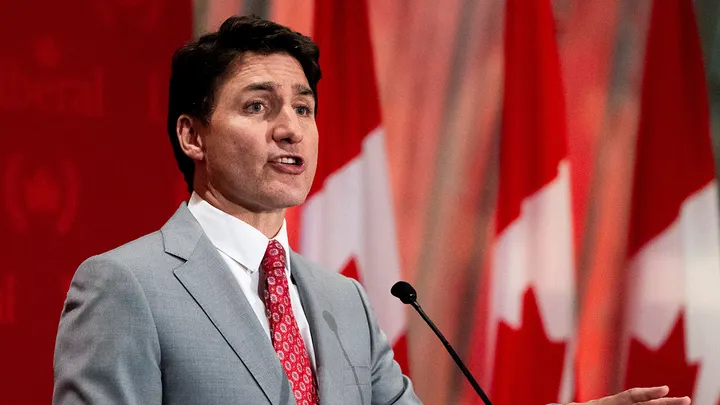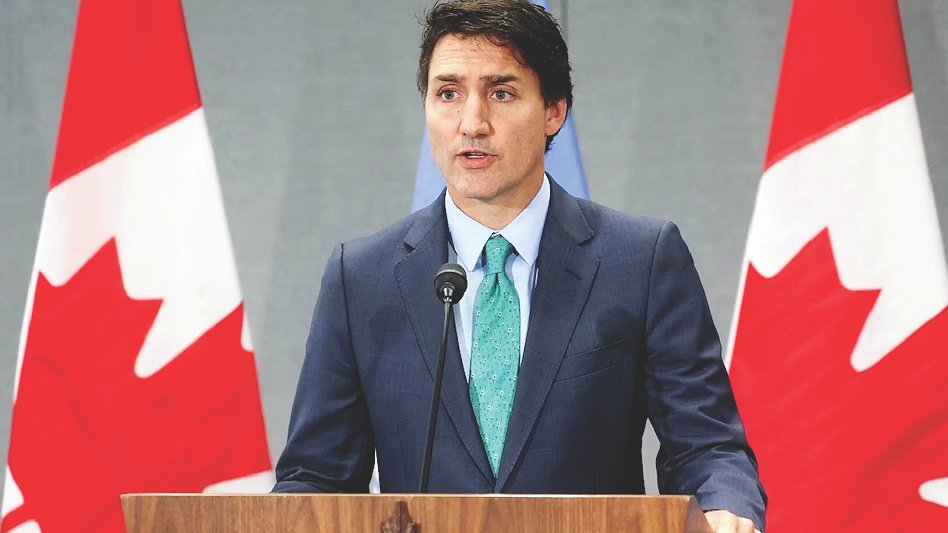Canadian Prime Minister Justin Trudeau recently faced unfiltered and scathing criticism from a steelworker during a public event in Sault Sainte Marie, Ontario. The confrontation, recorded on video and broadcast by CTV News, quickly went viral, highlighting the growing discontent among some Canadians about current government policies and their impact on everyday life.
The encounter
The incident occurred after Trudeau paused for a routine photo opportunity where he offered doughnuts to attendees. The steelworker, who has not been publicly identified, took the opportunity to express his frustrations directly to the prime minister. The worker’s discontent centered on several key issues: high taxes, rising medical bills and what he perceived to be inequities in government assistance.

The purpose of Trudeau’s visit was to promote recent government initiatives and investments, including a significant increase in tariffs on imported steel and a significant government investment in the local steel industry. However, the employee’s response was less about praising the policy and more about the concrete challenges he and his family face.
Key issues raised
High taxes and medical costs
One of the steelworker’s primary complaints was the high level of taxation he faces. “What about the 40% taxes I’m paying? And I don’t have a doctor,” he challenged Trudeau. The employee’s frustration reflects a widespread sentiment among some Canadians who feel that despite substantial tax contributions, their access to essential services like healthcare is inadequate.
In response, Trudeau pointed to the government’s investment in the steel industry and the introduction of new tariffs as measures designed to secure jobs and support local businesses. “The 25% tariff we just brought in is going to help you … it’s going to keep your job,” Trudeau stressed.
Perceived inequities
The employee also expressed concerns about perceived inequities in the distribution of government assistance. He questioned the fairness of initiatives he feels favour unemployed Canadians over those who are currently employed but struggling. “Maybe like my neighbour who doesn’t go to work because he’s lazy?” he asked, referring to broader debates about alleged abuses of the social safety net and government assistance programs.
Trudeau’s answer highlighted the government’s commitment to supporting all Canadians facing economic hardship. “You know what? The vast majority of Canadians try to get along with each other, and that’s what we have to keep doing,” he said.
Broader context
The exchange between Trudeau and the steelworker underscores a critical moment of tension in Canadian politics. As the country grapples with a cost-of-living crisis, inflationary pressures and issues around access to healthcare, conversations about government policy and public satisfaction are becoming increasingly urgent.
Economic pressures
Trudeau’s government has faced criticism for its handling of economic issues including inflation and rising living costs. Despite efforts to manage these challenges, many Canadians continue to feel pressure on their finances. The steelworker’s frustration with high taxes and medical bills reflects broader dissatisfaction with the way these economic pressures are being addressed.
The prime minister has acknowledged the difficulties Canadians face and emphasized recent improvements in economic indicators such as a reduction in inflation. However, as Trudeau noted in a recent Facebook post, “Until Canadians can feel relief in their wallets, at the grocery store, and on their mortgages, the job is not done.”
Healthcare System Strains
The steelworker’s comments also call attention to ongoing concerns about Canada’s healthcare system. Despite various government initiatives aimed at increasing access to dental care and other services, some individuals still feel their needs are not being adequately met. The worker’s comparison of his situation to that of unemployed Canadians reflects a perception that the system is failing to provide equal support.
Trudeau’s response
Throughout the conversation, Trudeau remained calm and composed, sticking to his approach of addressing concerns with optimism and focusing on government accomplishments. He emphasized the positive impact of recent investments and policies, but also acknowledged the importance of listening to and addressing public concerns. “I’m looking forward to everyone exercising their right to vote,” Trudeau said, highlighting the upcoming federal election as an opportunity for Canadians to express their views on the government’s performance. The next federal election is scheduled for October 20, 2025, and Trudeau’s government will need to resolve these complex issues as it seeks to gain support for another term.
